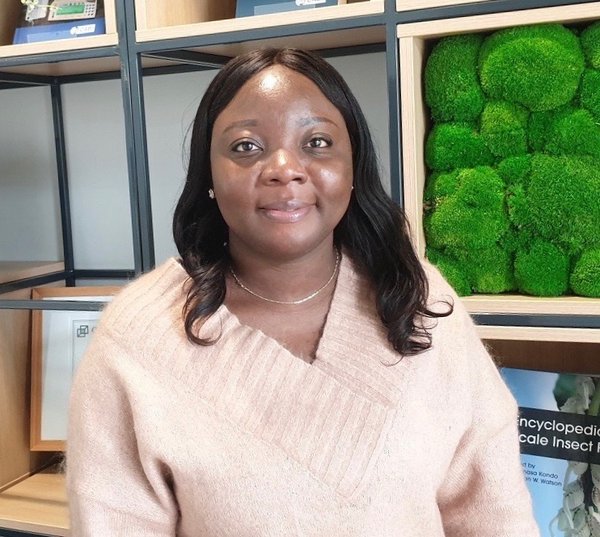- Share this article
- Subscribe to our newsletter
Data sharing has huge potential
When Covid-19 struck, the response among the scientific community was to share DNA sequencing and to rethink traditional ways of working in order to create a vaccine as quickly as possible. This leads to some big questions about what else can be achieved through more concerted approaches to data sharing. What impact could this have on farming across the global south and the drive towards more sustainable food production, for example?
Researchers in agri-food systems often go to great lengths to collect data. They also know better than anyone the value of accessing data from third parties, and yet very little of the data collected is made accessible to others. How can that be?
Value of data sharing
There can be good reasons why organisations, or individuals, feel uncomfortable about sharing data. But the more these issues are confronted in stakeholder engagement processes, the more likely it is that workable solutions can be found, and appropriate safeguards can be put in place.
At CABI, we are working with an increasing number of donors and partners on this issue. They see us as experts in the collection, storing and sharing of data. This is why the Bill & Melinda Gates Foundation began working with CABI in 2018 to investigate why data wasn’t always being used, even when everyone involved was committed to sharing it.
From a series of conversations with foundation-funded soil projects in India and Ethiopia, some issues emerged that worked against data sharing. These were largely non-technical factors. The recurring challenges included a lack of resources, processes and procedures – such as a mandate for data sharing.
Also, there were practical issues. Typically, research platforms are tied to project funding and are not always available to use after the projects close. Too often data is lost, hard to find or in formats that are not easy to use, even when the intention was the opposite.
Challenges in the data space
In the wider data environment, these challenges have led to a series of initiatives, such as the Open Data Movement. CABI has also done a lot of work on open data and found that this also creates challenges. For example, not all data that is collected can, or should, be shared. There are now global and national data protections to safeguard people’s personal information. This means most data needs some curation and redaction.
For this purpose, CABI proposed using the FAIR data principles as a framework for improving access to data. FAIR data is defined as data that is findable, accessible, interoperable and reusable. As a framework it has gained wide acceptance, especially by the EU Horizon programme and other research funders.
These FAIR data principles are a brilliant starting point. However, they were originally developed for an audience that is very comfortable with technical language, which can be stressful and off-putting for others who are also integral to the design of strong projects.
Customised FAIR principles
CABI’s approach to data sharing is to work collaboratively with our partners to customise and define project-level FAIR principles. Our approach is to first understand the people in any data ecosystem and their relationships with each other. Then we identify the challenges, needs and opportunities.
We want those we work with to tell us what FAIR and useful data sharing means to them. It is far more effective if the definition comes out of engagement with the community that supplies and uses the data.
CABI supports practical implementation of the FAIR approach, designing better processes and training teams. This starts by understanding the problem. Then we map the landscape to work out where we can make the most difference in supporting better data sharing.
We are currently testing a process that aims to guide organisations towards developing their FAIR implementation strategies. Often, this is in parallel to helping donors and governments design better data governance, strategy and policy.
Transformative changes
Getting to a place where an organisation has its data available to share is a long-term, resource-heavy and time-consuming process. Furthermore, most of the benefits will accrue outside of the organisation. But the potential benefits flowing from these changes can be transformative. For example, data can help improve the resilience of smallholder farmers, their communities and the natural environment.
The Data Sharing Toolkit was launched by the Open Data Institute (ODI) and CABI to unlock better access to information on soil health, agronomy and fertilisers in sub-Saharan Africa and South Asia. And it is already helping to strengthen sustainable food security. The toolkit can be accessed freely via the CABI Academy platform and includes seven eLearning modules with supporting case studies, checklists, cheat sheets and guides. These help demystify how to use, collect and share FAIR and safeguarded data for the benefit of a country’s agricultural economy.
The tookit was developed in collaboration with senior officials and academics in Ethiopia and India. This work has helped with the implementation of a soil and agronomic data policy in Ethiopia, while training and support on data sharing in India has already caused a shift in attitudes towards FAIR data.
For an organisation to be ready to share its data effectively, it takes leadership from the top of the organisation.
More information:
www.cabi.org/products-and-services/academy/about-cabi-academy/





Add a comment
Be the First to Comment